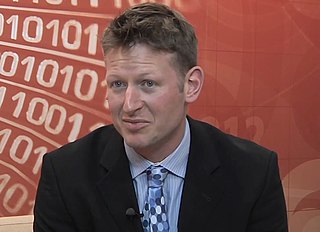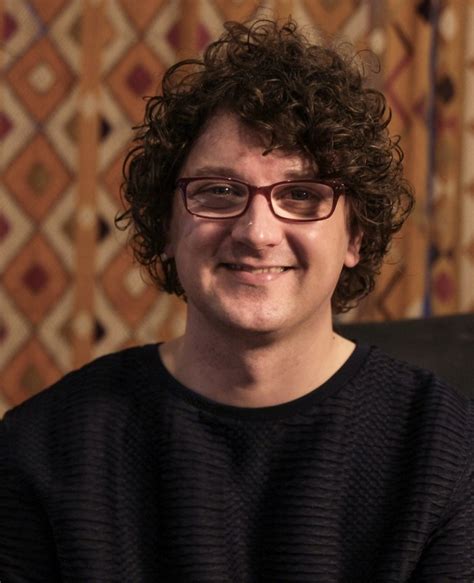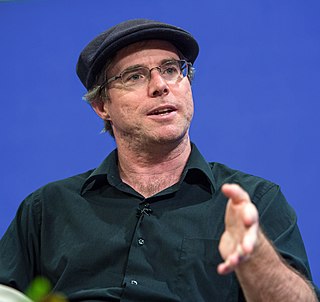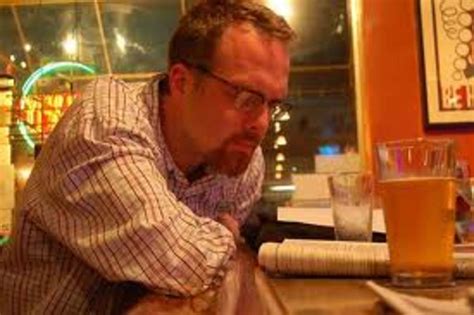Top 116 Asteroid Quotes & Sayings - Page 2
Explore popular Asteroid quotes.
Last updated on April 19, 2025.
The chunks of comet Shoemaker-Levy 9 were so large, and were moving so fast, that each hit Jupiter with at least the equivalent energy of the dinosaur-killing collision between Earth and an asteroid 65 million years ago. Whatever damage Jupiter sustained, one thing is for sure: it's got no dinosaurs left.
This is the sort of book that justifies fatwahs. If WWIII occurred right now, we could die happy knowing Baxter would never write again. If a dinosaur killing asteroid was headed for Earth and I knew Baxter had another book coming up, I would campaign for letting the rock hit, since it is obviously the work of a benovelent deity trying to save us from another Titan.
In time, [a Martian] colony would grow to the point of being self- sustaining. When this stage was reached, humanity would have a precious insurance policy against catastrophe at home. During the next millennium there is a significant chance that civilization on Earth will be destroyed by an asteroid, a killer plague or a global war. A Martian colony could keep the flame of civilization and culture alive until Earth could be reverse-colonized from Mars.
It is interesting to observe with what singular unanimity the farthest sundered nations and generations consent to give completeness and roundness to an ancient fable, of which they indistinctly appreciate the beauty or the truth. By a faint and dream-like effort, though it be only by the vote of a scientific body, the dullest posterity slowly add some trait to the mythus. As when astronomers call the lately discovered planet Neptune; or the asteroid Astr
The Moon is a ball of left-over debris from a cosmic collision that took place more than four billion years ago. A Mars-sized asteroid - one of the countless planetesimals that were frantically churning our solar system into existence - hit the infant Earth, bequeathing it a very large natural satellite.
The future is about wings and wheels and new forms of space transportation, along with our deep-space ambition to set foot on another world in our solar system: Mars. I firmly believe we will establish permanence on that planet. And in reaching for that goal, we can cultivate commercial development of the moon, the asteroid belt, the Red Planet itself and beyond.
I do not expect NASA to go out and build settlements and colonies. I do not expect them to give SpaceX all the money needed to colonize Mars. I do not expect them to realize the future of humanity is contingent on harvesting the wealth of the solar system overnight and suddenly subsidize my asteroid mining project.
If you were to stand on an asteroid in the main belt of asteroids between Mars and Jupiter in our solar system, you might be able to see one or two asteroids in the sky, but they would be very far away and very, very small. So you wouldn't have this 'dodging through tons of rocks' business you get in the movies.
There is a one-in-300 chance that Earth will be struck on March 16, 2880, by an asteroid large enough to destroy civilization and possibly cause the extinction of the human race. But, on the bright side, Prince could re-release his hit song with the new refrain 'We're gonna party like its twenty-eight seventy-nine.'
But to carve the Grand Canyon, Earth required millions of years. To excavate Meteor Crater, the universe, using a sixty-thousand-ton asteroid traveling upward of twenty miles per second, required a fraction of a second. No offense to Grand Canyon lovers, but for my money, Meteor Crater is the most amazing natural landmark in the world.
Asteroids have us in our sight. The dinosaurs didn't have a space program, so they're not here to talk about this problem. We are, and we have the power to do something about it. I don't want to be the embarrassment of the galaxy, to have had the power to deflect an asteroid, and then not, and end up going extinct.
Think about the strangeness of today's situation. Thirty, forty years ago, we were still debating about what the future will be: communist, fascist, capitalist, whatever. Today, nobody even debates these issues. We all silently accept global capitalism is here to stay. On the other hand, we are obsessed with cosmic catastrophes: the whole life on earth disintegrating, because of some virus, because of an asteroid hitting the earth, and so on. So the paradox is, that it's much easier to imagine the end of all life on earth than a much more modest radical change in capitalism.
Percy smiled at her - that sarcastic troublemaker smile that had annoyed her for years but eventually had become endearing. His sea-green eyes were as gorgeous as she remembered. His dark hair was swept to one side, like he'd just come from a walk on the beach. He looked even better than he had six months ago - tanner and taller, leaner and more muscular. Percy threw his arms around her. They kissed and for a moment nothing else mattered. An asteroid could have hit the planet and wiped out all life, and Annabeth wouldn't have cared.
By 2025 we expect new spacecraft designed for long journeys to allow us to begin the first ever crewed missions beyond the Moon into deep space. So we'll start by sending astronauts to an asteroid for the first time in history. By the mid-2030s I believe we can send humans to orbit Mars and return them safely to Earth. And a landing on Mars will follow and I expect to be around in see it.
American writers often say they find it difficult to write Superman. They say he's too powerful; you can't give him problems. But Superman is a metaphor. For me, Superman has the same problems we do, but on a Paul Bunyan scale. If Superman walks the dog, he walks it around the asteroid belt because it can fly in space. When Superman's relatives visit, they come from the 31st century and bring some hellish monster conqueror from the future. But it's still a story about your relatives visiting.
Nature is not here to keep you alive. It has just as many ways to kill you as it does to sustain you. And if you cherry-pick this fact, you are left thinking that earth is some haven for life, but 96, 97 percent of all species that ever lived on earth are now extinct from the actions of the earth itself and an occasional asteroid to stir the pot.
Now, once again, we find ourselves facing rising gas prices, and the question is: This time, are we going to learn from the past? Are we finally going to get serious about energy conservation? Of course not! We have the brains of mealworms! So we need to get more oil somehow. As far as I can figure, there's only one practical way to do this. That's right: We need to clone more dinosaurs. We have the technology, as was shown in two blockbuster scientific movies, Jurassic Park and Jurassic Park Returns with Exactly the Same Plot. Once we have the dinosaurs, all we need is an asteroid.
It occurred to Susan that men were always waiting for something cataclysmic-love or war or a giant asteroid. Every man wanted to be a hot-headed Bruce Willis character, fighting against the evil foreign enemy while despising the domestic bureaucracy. Men just wanted to focus on one big thing, leaving the thousands of smaller messes for the women around them to clean up.
They say asteroids hit the moon pretty often, which is how the moon gets its crater, but this one is going to be the biggest asteroid ever to hit it and on a clear night you should be able to see the impact when it happens, maybe even with the naked eye but certainly with binoculars. They made it sound pretty dramatic, but I still don't think it's worth three homework assignments.
We need early warning systems, technologies to deflect an asteroid - and we need political preparedness as well. It needs to be clear who is to decide what, who launches the rockets, who presents which bills to its citizens. This is a planetary decision. We need to do this all together. Or it will not happen.
We imagine going to the moon and planting a flag, going to an asteroid and mining, going to Mars and setting up a colony. And I think that expansionist mentality is very self-destructive, especially given the kind of precarious relationship we now have to the ecosystem here on Earth, because it allows us to imagine that Earth is disposable.
I would love to see the world's space programs continue toward sending humans to an asteroid or to Mars, with, of course, a full plan in place to bring them back. That excites me. And one of the things that excites me most about space is that we can go up there and put spacecraft in orbit with sensors that will help us measure the health of our planet, which is becoming particularly important. Our planet needs to be observed.
Space travel leading to skylife is vital to human survival, because the question is not whether we will be hit by an asteroid, but when. A planetary culture that does not develop spacefaring is courting suicide. All our history, all our social progress and growing insight will be for nothing if we perish. No risk of this kind, however small it might be argued to be, is worth taking, and no cost to prevent it is too great. No level of risk is acceptable when it comes to all or nothing survival.
It shouldn't be so difficult to determine what a planet is. When you're watching a science fiction show like 'Star Trek' and they show up at some object in space and turn on the viewfinder, the audience and the people in the show know immediately whether it's a planet or a star or a comet or an asteroid.
If a gigantic asteroid were barreling toward impact with our planet, you can bet there would be at least a few members of Congress who would insist on leaving it alone, either because they would see it as a warning shot from the Almighty or because a mining company with a savvy team of lobbyists had laid claim to the big rock.
Certainly what happened to the dinosaurs was not good - that was a terrible day for the dinosaurs, very sad. But I have to say, there are a lot of threats we face as people and, as someone who lives in Los Angeles, I'm personally more likely to die from driving on the freeway than I am from an asteroid, so you have to put that risk in perspective.








































